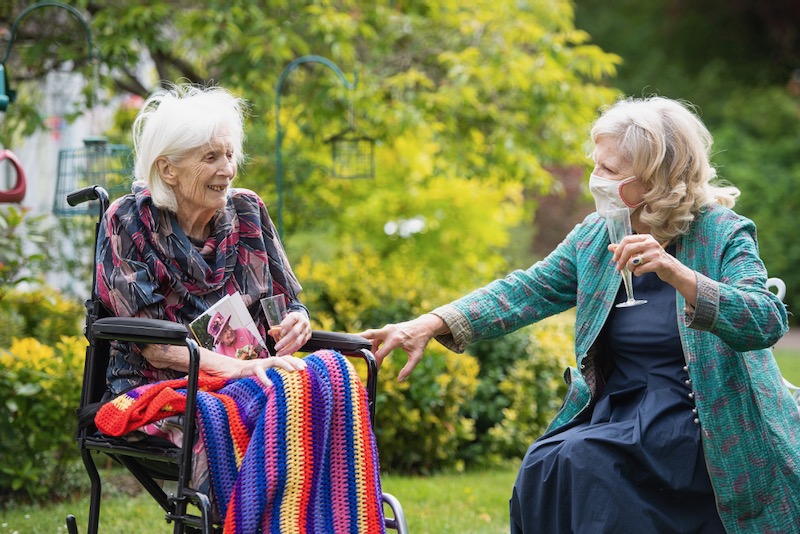It seems that Candlemas is enjoying a bit of a revival, if only as an excuse for decking the halls with boughs of tinsel and fairy lights for a little longer to relieve the Covid gloom. Pundits have suggested that we trade up from 12 days to 40 as the proper span of our midwinter revels. It would certainly be good if Candlemas no longer felt marooned at the beginning of the shortest month without any organic link to the feast of the Nativity. Perhaps the blessing of candles tomorrow could also be rescued as a meaningful rite as we trudge through these sombre days of Covid-confinement.
But to savour the richness of the feast, we need to suspend our Western forensic mindset and simply enter into Luke’s lovely tale (Lk 2.21-40). We are not meant to enquire how the infant Messiah could simultaneously be heading to Jerusalem, aged six weeks, and on his flight to Egypt, as Matthew requires. The lack of evidence in Jewish sources for a Rite of Presentation of the First-Born in the Temple is neither here nor there. Nor should the Evangelist’s vagueness about who or what is being “purified” detain us, however much we might now cringe at the notion that a mother might need to be “churched” post-partum. Luke merely wants to establish that Mary and Joseph are good observant Jews – and that they are poor – hence their sacrifice of a brace of birds, rather than a more costly lamb. They did everything that the Law of the Lord required – and then went back to Galilee (Lk 2.40). Thus the stage is set, in cadences consciously borrowed from the Hebrew Scriptures, for what comes next.
What strikes me most, and what might give us pause for thought today, is the figure of Simeon. We’re not told that he is ancient but we are surely meant to imagine that he is; as old, in fact, as the Bible. He stands as Eli stood at Shiloh, the old priest receiving the holy child (1 Sam 2.24-28). He is biblical hope in person – and now, says Luke, his life is complete. Now he has seen the Christ and sung his hymn and made his prophesy to Mary. Nunc dimittis! At last he’ll die in peace.
But for us living after Christ (and after Covid-19): how big is our hope – and can it survive the ageing process? This side of the grave can we look forward to anything other than more of what has already been and to deferring death? In our medicalised culture can we meet mortality as other than defeat?
We’ve become much more aware since the pandemic struck of the care and nursing homes where so many end their days. Many of us have agonised personally at the sequestration of our seniors, contained, however comfortably, behind glass, touched only by staff in PPE; family hugs replaced by screen-time, Skype and all the rest. How can we make these places, for those whose health is failing, truly places of joyful living, rather than just of waiting for an inevitable end? (It can be done: I never can repay the kindness of the staff of my mother’s home in her last half-decade on this earth).
Before we reach the stage of needing “personal care” and supervision, still the question remains of what we shall make of our retirement. Pre-Covid, most of us harboured some version of the Middle-Class dream of a gentle prosperity punctuated by little treats and trips and holidays, the mortgage paid down and the bank of mum and dad not too much under pressure from the multiply-indebted progeny; and that despite the reality for many of an existence eked out on the state pension of £175 a week and various supplementary credits. But, whatever our finances, how to ensure that the Third Age is more than a time of diversion and distraction?
Traditional cultures value “the elders”, whose counsel the rest of the community instinctively seeks. Failing strength may go with growing wisdom, hard-won from life’s struggles. And even if the mind should fail, the elder stands mute witness to the continuity and values of the tribe. (Mt 11.25; 1 Cor 13.8 have a resonance when dealing with dementia.) In contrast, we seem to have lost that relationship of respectful dialogue between the generations in the “old” cultures of the industrialised West. In more light-hearted moments we speak of seniors being “over the hill”, while the stereotypical “grumpy old man” that was Victor Meldrew viewed the world through a mesh of disappointments.
Old Simeon doesn’t sound disappointed. He’s full of life – a life which has been spent scanning the horizon (like the Father of the Prodigal in Lk 15), waiting with love, convinced that the Lord will fulfil his promise. The light will dawn. Here hope is transformed: no longer hope for some particular outcome, but hope in Someone; and, because of that relationship, hope placed once again in others. Yet as a Church we haven’t been good at teaching that sort of hope.
With our own private hopes and dreams disrupted by the pandemic, with an ageing population, with an ageing Church leadership, too; it’s time to speak again of hope. Not simply hope for life after death, important though that be in Christian teaching, but hope also for now; not just a hope to evade death for a little longer, either, but living more generously today, however long or short today may be; not the shock of the new, sweeping away the past as obsolete but the re-engagement of the generations to discover together enduring values; a shift from our private strivings for personal advancement to a shared search for wisdom. Perhaps it’s providential that the eighth oldest Pope in history and the oldest ever President of the USA are in command right now. Let’s pray that their old hope can renew hope in the young.



 Loading ...
Loading ...
What do you think?
You can post as a subscriber user ...
User comments (0)